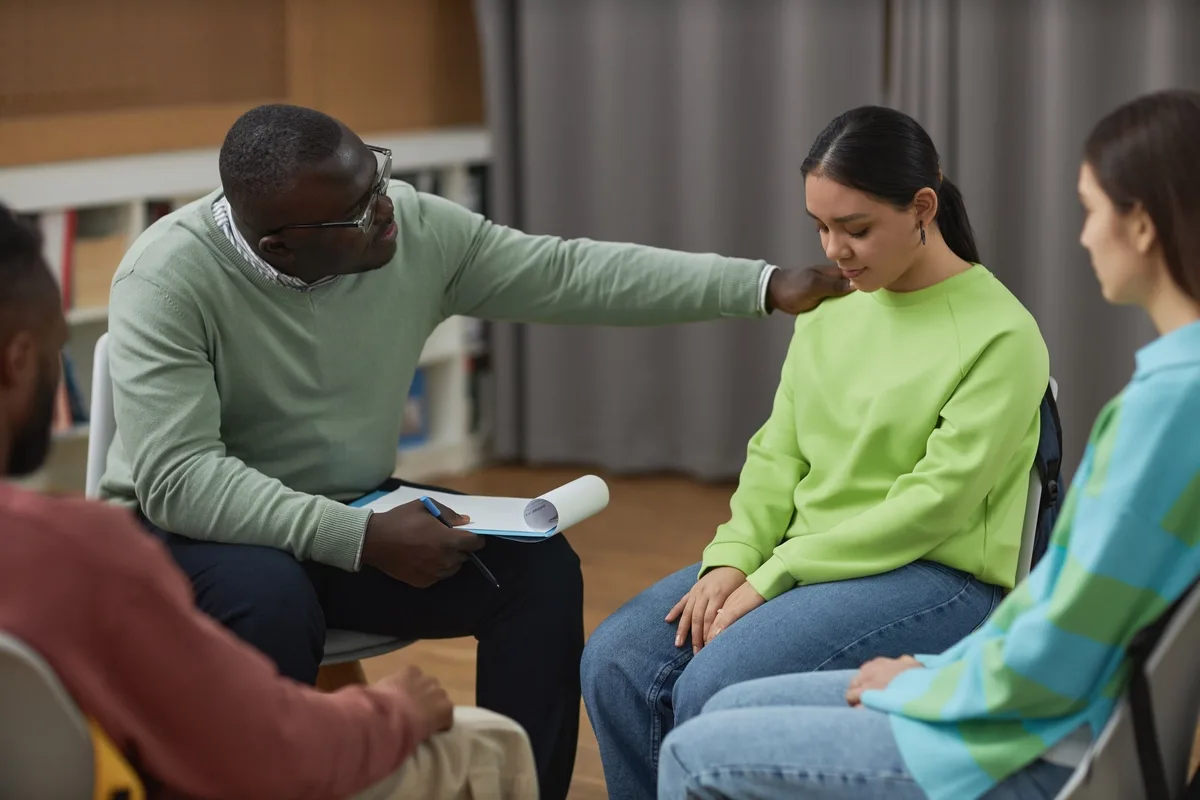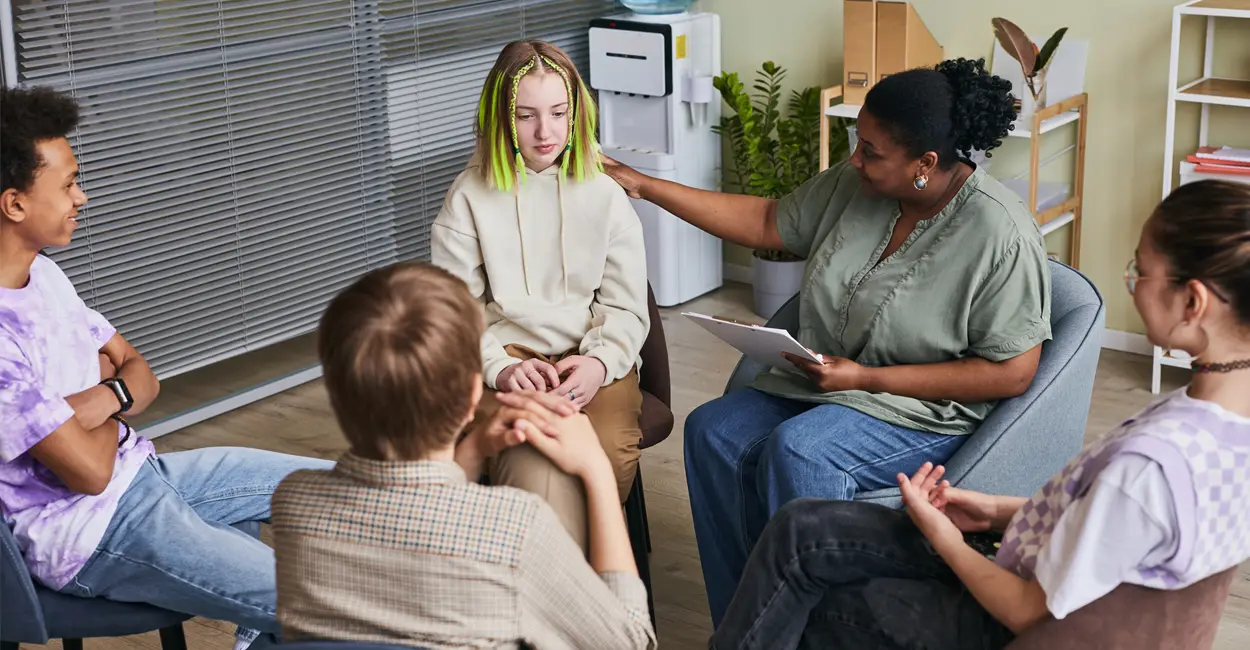24/7 Helpline:
(866) 899-221924/7 Helpline:
(866) 899-2219
Learn more about PTSD Rehab centers in Parker

Other Insurance Options

Ambetter

Excellus

WellPoint

Absolute Total Care

Health Net

Multiplan

State Farm

Group Health Incorporated

BlueShield

UnitedHealth Group

Optum

Oxford

Access to Recovery (ATR) Voucher

Lucent

AllWell

Kaiser Permanente

Premera

Meritain

CareFirst

GEHA









New Paradigm Counseling
New Paradigm Counseling is a private rehab located in Castle Rock, Colorado. New Paradigm Counseling...

All Health Network
All Health Network provides counseling in an outpatient basis for individuals from all ages who are ...

1st Alliance Treatment Services
1st Alliance Treatment Services is located in Castle Rock, Colorado. 1st Alliance Treatment Services...

Compass Health Network – Sedalia
Pathways Community Health’s Sedalia, Missouri office is located at 1700 West Main Street and provide...






















AA – Alcoholics Anonymous – South Lafayette Avenue
AA – Alcoholics Anonymous – South Lafayette Avenue is a non-profit rehab located in Sedalia, Missour...

AA – Alcoholics Anonymous – West Pettis Street
AA – Alcoholics Anonymous – West Pettis Street is a non-profit rehab located in Sedalia, Missouri. A...

Central State MHC
Central State MHC provides substance abuse treatment in an outpatient setting for people in Jackson,...














































